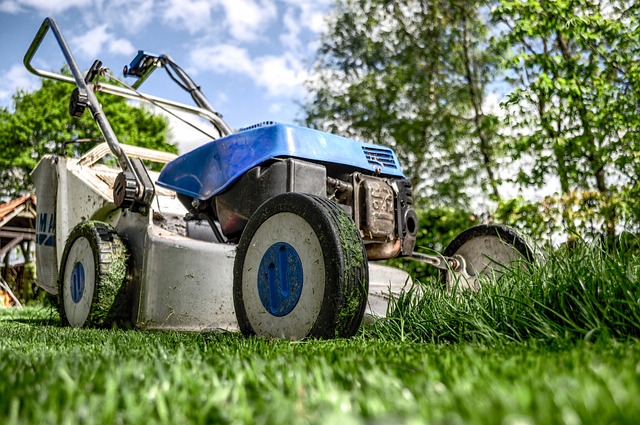Yard waste management is essential for environmental sustainability, as it helps minimize landfill waste and methane emissions. Composting organic materials like grass clippings, leaves, and garden debris not only reduces environmental impact but also produces enriching humus for soil health, aiding crop production and reducing the need for synthetic fertilizers. Municipalities have implemented yard waste removal and recycling programs, including curbside collection services and community composting facilities, to divert organic waste from landfills. These initiatives not only align with public environmental awareness efforts but also contribute to lower greenhouse gas emissions and promote eco-conscious practices. Yard Waste Removal and Recycling is a sustainable approach that offers both environmental and health benefits by transforming yard waste into valuable compost, educating the community on best practices, and reducing the reliance on landfills. These programs are tailored to meet the specific needs of different communities and are instrumental in supporting a circular economy where waste reduction and resource reuse are prioritized. Homeowners can actively participate by composting at home, chipping or mulching large debris, and utilizing local yard waste removal services, thereby contributing to a more sustainable future. Community-driven initiatives further enhance these efforts by educating residents on the ecological and practical benefits of proper yard waste disposal and management.
Composting and recycling yard waste offer pivotal environmental benefits, enhancing garden vitality while reducing landfill reliance. This article delves into the intricacies of yard waste—its types and composition—and highlights local programs that exemplify community commitment to sustainable practices. Explore the advantages of composting organic matter for soil health and overall sustainability. Gain insights into practical, at-home composting strategies and learn about educational initiatives designed to foster a greener, more responsible approach to yard waste removal and recycling. Engage with this guide to transform your yard waste from discardable to valuable, contributing to the health of your garden and the environment.
- Understanding Yard Waste: Types and Composition
- Local Yard Waste Removal and Recycling Programs: A Community Effort
- The Benefits of Composting Organic Yard Waste for Garden Health and Sustainability
- Implementing Effective Yard Waste Recycling Practices at Home
- Educational Initiatives and Resources for Yard Waste Removal and Recycling
Understanding Yard Waste: Types and Composition

Yard waste is a significant component of municipal solid waste streams, encompassing organic materials such as grass clippings, leaves, branches, and garden residues generated from landscaping or gardening activities. Proper yard waste removal and recycling play a crucial role in sustaining environmental health and reducing landfill use. Understanding the types and composition of yard waste is essential for effective management practices. Organic materials decompose anaerobically in landfills, contributing to methane emissions, a potent greenhouse gas. By contrast, when composted aerobically, these same materials can be transformed into nutrient-rich humus that benefits soil health and crop production. Composting yard waste not only diverts organic material from landfills but also creates a valuable product for use in agriculture and horticulture.
The composition of yard waste varies by season and geography, with leaf litter predominant in the fall, grass clippings in the spring and summer, and brush and tree trimmings year-round. Municipalities and waste management companies offer yard waste removal and recycling programs to facilitate this process. These programs often include curbside collection services, where residents can set out their yard waste for pickup, and community composting facilities, which are accessible to both residents and commercial entities. By participating in these programs, communities can significantly reduce the volume of organic waste sent to landfills, promote soil health, and contribute to the overall reduction of greenhouse gas emissions associated with waste management. Yard waste removal and recycling are thus not only environmentally sound practices but also offer tangible environmental benefits that resonate with a growing eco-conscious public.
Local Yard Waste Removal and Recycling Programs: A Community Effort

Local yard waste removal and recycling programs represent a significant community effort in sustainable waste management. These initiatives are designed to divert organic matter from landfills, thereby reducing methane emissions and promoting soil health. Residents are encouraged to participate by composting yard waste such as leaves, grass clippings, and garden trimmings. The program typically includes scheduled pick-up services for compostable materials, which are then processed into nutrient-rich compost. This not only minimizes the environmental impact of waste but also provides a valuable resource for local gardens and farms. Community education plays a pivotal role in these programs, as it informs residents about the benefits of composting and recycling yard waste, as well as the proper methods for preparing and handling such materials. Workshops, informational brochures, and online resources are often provided to ensure that participants understand best practices for their specific types of yard waste, enhancing the effectiveness of the community’s composting and recycling efforts.
The collaborative nature of these yard waste removal and recycling programs fosters a sense of shared responsibility among residents. It emphasizes the collective impact of individual actions in protecting the environment and promoting sustainability. Local governments, waste management companies, environmental organizations, and educational institutions frequently partner to offer these services and educational support. Through this partnership, they aim to raise awareness about the importance of proper yard waste disposal and its positive environmental outcomes. These programs are adaptable, often tailored to meet the unique needs and challenges of the community, ensuring that each participant can contribute effectively to the initiative’s success.
The Benefits of Composting Organic Yard Waste for Garden Health and Sustainability

Composting organic yard waste offers a multitude of benefits for garden health and sustainability practices. By transforming materials such as leaves, grass clippings, and kitchen scraps into nutrient-rich compost, gardeners can enrich their soil without resorting to synthetic fertilizers. This process not only returns essential nutrients to the earth but also supports the development of a healthy, diverse microbial community within the soil. The resulting compost enhances soil structure and moisture retention, which is advantageous for plant growth and resilience against pests and diseases. Yard waste removal and recycling through composting thus contribute to the reduction of methane emissions from landfills, where organic matter decomposes anaerobically, a process that generates greenhouse gases. In turn, this supports climate change mitigation efforts and promotes a circular economy where resources are reused and waste is minimized. Yard Waste Removal and Recycling services play a crucial role in facilitating this sustainable practice, making it accessible and convenient for individuals and communities alike to participate in this eco-friendly initiative. Engaging in composting as part of one’s gardening routine not only enhances the immediate garden environment but also aligns with broader environmental stewardship goals, fostering a more sustainable future for all.
Implementing Effective Yard Waste Recycling Practices at Home

Homeowners can significantly contribute to environmental sustainability by implementing effective yard waste removal and recycling practices. Composting is a cornerstone of this process, as it transforms organic materials like leaves, grass clippings, and kitchen scraps into nutrient-rich soil amendments. By setting up a compost bin or pile in a convenient location, residents can reduce the volume of yard waste sent to landfills. The composting process not only saves space but also supports soil health, reduces greenhouse gas emissions, and minimizes the need for chemical fertilizers.
In addition to composting, chipping or mulching large branches and woody debris can further enhance the recycling of yard waste. Municipalities often provide yard waste collection services or designated drop-off sites where residents can bring their organic material for processing. These services are designed to handle various types of yard waste effectively, from small trimmings to larger items. By familiarizing yourself with the local options and adopting these practices, homeowners can ensure that their yard waste is responsibly managed, contributing to a cleaner environment and conserving natural resources.
Educational Initiatives and Resources for Yard Waste Removal and Recycling

Community-driven programs across various regions have taken a proactive stance in promoting yard waste removal and recycling initiatives. These initiatives aim to educate residents on the environmental benefits and practical applications of composting organic materials from their yards, such as leaves, grass clippings, and garden trimmings. By providing clear guidelines and resources for yard waste disposal, these programs not only reduce landfill waste but also create nutrient-rich compost that enriches soil health. Composting educational workshops, how-to guides, and even online platforms are instrumental in disseminating information on best practices for yard waste management. These resources often include detailed instructions on setting up a compost bin, the types of materials suitable for composting, and the maintenance required to ensure efficient decomposition. Furthermore, many municipalities offer curbside collection services specifically designed for yard waste, making it convenient for residents to participate in these green efforts. The availability of these services is often accompanied by informational campaigns that highlight the ecological impact of proper yard waste disposal, encouraging a collective effort towards sustainable waste management practices.
Effective yard waste removal and recycling play a pivotal role in sustaining environmental health and community well-being. The educational initiatives and resources available for residents underscore the importance of composting organic materials, which not only enhances garden health but also contributes to broader sustainability goals. By participating in local programs designed for yard waste removal and recycling, individuals can significantly reduce waste, conserve natural resources, and promote a resilient community ecosystem. As evidenced throughout this article, the collective effort in understanding and implementing best practices for yard waste management can lead to tangible environmental benefits. It is clear that ongoing education and proactive participation are key to the success of these initiatives. Residents are encouraged to engage with the provided resources and programs to ensure a greener, more sustainable future for their community.






